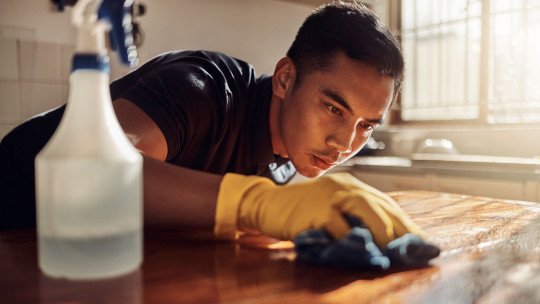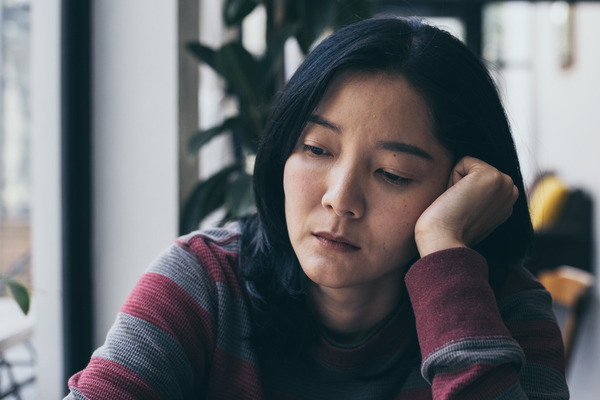What can we do to help people with OCD? Can people who suffer from OCD be dangerous? Discover the symptoms and how to help someone who suffers from this disorder.

Supporting a person who suffers from an obsessive-compulsive disorder can be difficult due to the complexity that this pathology can have from the outside. In fact, you may have a hard time understanding his experiences or the fact that he feels like his obsessions and compulsions are interfering with his daily life. Even so, you must understand that support and understanding of this disorder can make a big difference. Additionally, there are many things you can do to find out how to help a person with ocd
What is a person with OCD like?
The first way you can help a person with OCD is to recognize some warning signs that may arise as a result of this disorder. Therefore, it is vital to recognize these significant behavioral changes. Some of the signs that we should take into account when living with a person with OCD are the following:
- Spending an inexplicable and excessive amount of time alone
- Doing things over and over (having repetitive behaviors)
- Constantly question your own judgments
- Taking too long to complete a simple task
- Worrying more than normal about certain things or small details
- Having more severe and extreme emotional reactions to small things
- Staying up late to do things
- Everyday life becomes a constant struggle
- Avoid others
- Increased irritability and indecision
The people with OCD They often experience a worsening of their symptoms the more they are criticized or blamed because these emotions can cause them more anxiety. Therefore, it is essential that people who live with someone who suffers from OCD learn to see these characteristics as part of the disorder and not as traits of their personality. This way, you can know how to help a person with OCD to combat their symptoms, instead of distancing yourself from them.
Doesn’t a person with OCD cause problems for others?
Normally, we tend to think that people with OCD like those who wash their hands repeatedly. But, one of the biggest misconceptions about OCD is that there is only one type. There are actually different types of OCD and each has its characteristic symptoms.
A common subtype of OCD is harming. This type of OCD implies that the sufferer is constantly worried about harming others or themselves. Even so, we must keep in mind that even if people are diagnosed with this disorder, if they receive treatment they are not dangerous to others. In no case is a person diagnosed with this disorder dangerous to himself or others, whether medicated or not.

How to help a person with OCD?
If someone you love suffers from OCD, we recommend that you keep the following tips in mind to help them with the symptoms of this disorder:
- Change your expectations: The people with OCD They often experience change as stressful. Often, it is during these changes that OCD symptoms tend to flare up. However, you can help navigate these changes by having different expectations in these times of transition. That is, validating their feelings in these moments instead of expecting them to improve because of your help, will help them in these moments.
- Remember that each case is unique: Not all people with OCD they improve at the same time. In fact, there is wide variation in the severity of OCD symptoms among individuals. Therefore, the best thing you can do to help them is to encourage them despite their changes and be patient with the treatment.
- Avoid comparisons: To the living with OCD, you may hear them say that they feel like they’re back to square one when they have tough days. These day-to-day comparisons are misleading as they do not represent developments in the bigger picture. When the person with OCD has these thoughts, it is important to remind them of the progress they have made.
- Recognize small improvements: The OCD people They may feel that perhaps many of those around them do not understand them. For this reason, sometimes it is important for people who live with someone with OCD to learn to recognize the small improvements that they can make in their daily lives.
- Create a supportive environment: The more you can avoid personal criticism, the better. Therefore, learning about this disorder can also help you support the person who suffers from it. We recommend that you make an effort not to participate in the compulsions that the person may have. To do this, if you recognize a compulsion, try to explain to them that it is a symptom of OCD and that reinforcing them will not help them.
- Find out how to deal with the symptoms together: One of the most difficult things to living with someone with OCD is learning to deal with your symptoms. In these cases, it is valuable to try to talk about how you can deal with the anxiety you feel when experiencing a compulsion.
- Help them follow their treatment: A treatment will be more effective if people with OCD They have an environment that supports them to follow it. Therefore, knowing what guidelines to follow at certain times can help these people achieve better results. We recommend that you speak with a specialist psychologist to find out what you can do about anxiety or when OCD symptoms worsen.
- Take care of yourself: Supporting someone who suffers from OCD can be frustrating and upsetting at times. For this reason, it is also crucial that you take care of yourself if you live with someone who suffers from OCD. If you think this situation is overwhelming you, you should even go to a professional psychologist.
The people with OCD, and adequate treatment will not only improve but in many cases the problems will be overcome. For this, hypnosis or exposure therapies will be two very valid ways. Even so, the environment in these cases is vital.








